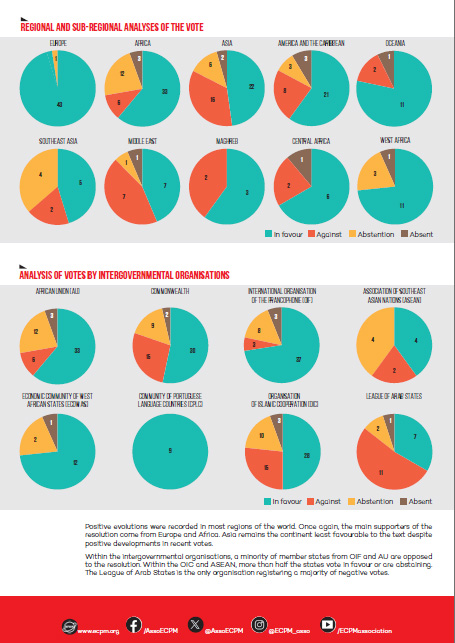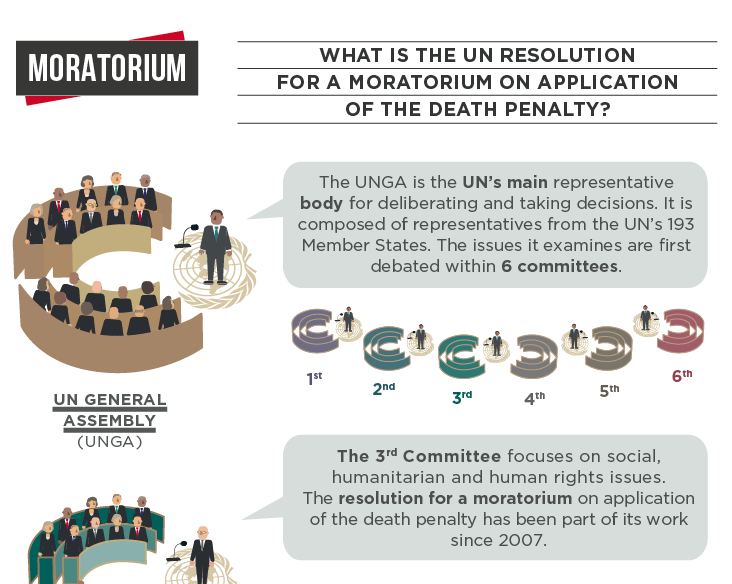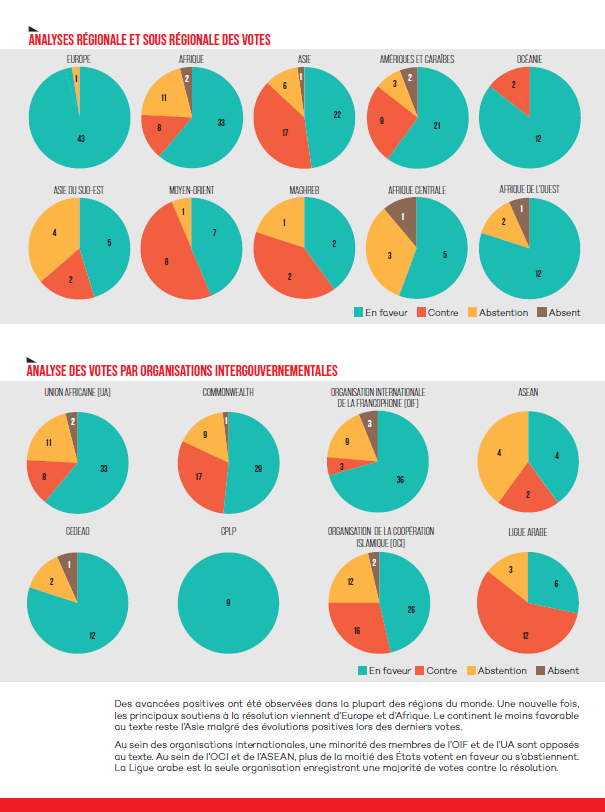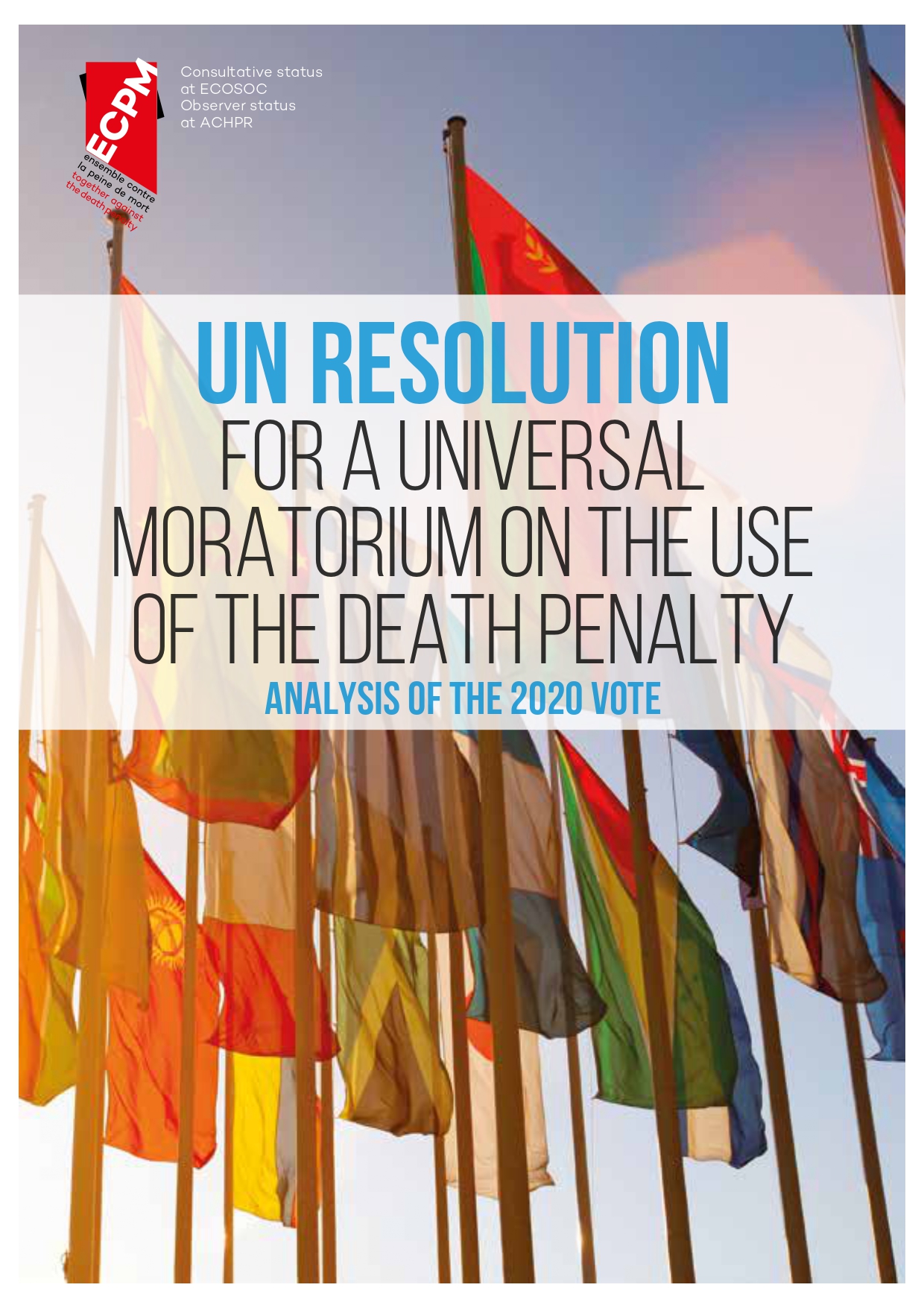With this text, adopted on each occasion by a large majority of States, the UN reaffirms that the use of the death penalty violates human dignity and calls upon all States “to establish a moratorium on executions with a view to abolishing the death penalty”.
To date, ten resolutions have called for a universal moratorium on executions, with an increasing number of states voting in favour each time. The total number of votes in favour of these resolutions has risen from 104 in 2007 to 130 in 2024, an indication of the global trend towards an end to the death penalty.
The 10th Resolution was put to the vote at the plenary session of the United Nations General Assembly on 17 December 2024.
Previous vote in December 2022
On 15 December 2022, the United Nations General Assembly (UNGA) plenary session voted by a very large majority (125) in favour of resolution A/RES/77/222 for a universal moratorium on the use of the death penalty. ECPM analyses the consistency of each vote with national situations.
What weight does the moratorium resolution carry ?
As the resolution is not legally binding, it cannot prevent a state from carrying out an execution or sanction it for doing so. However, a powerful call from the highest political body in the UN carries considerable moral weight and is a valuable tool in the quest for a death penalty-free world.
The 2020 resolution had introduced new elements to strengthen the text and call on states to improve protection of the rights of those facing the death penalty. The text stressed the need to “improve conditions in prisons” and recognises “the discriminatory application of the death penalty to women”.
The text was also more protective of minors, with the UNGA calling on states not to impose the death penalty on persons “whose age above 18 years at the time of the commission of the crime cannot be accurately determined”, and adding a new paragraph on the rights of children whose parents are on death row.
The 2022 resolution added new elements to the 2020 text concerning States’ duty of transparency and respect for fair trial guarantees in trials that could lead to a death sentence. This year’s text also includes a new paragraph on improving the conditions of detention of persons sentenced to death, with reference to the Nelson Mandela Rules.






